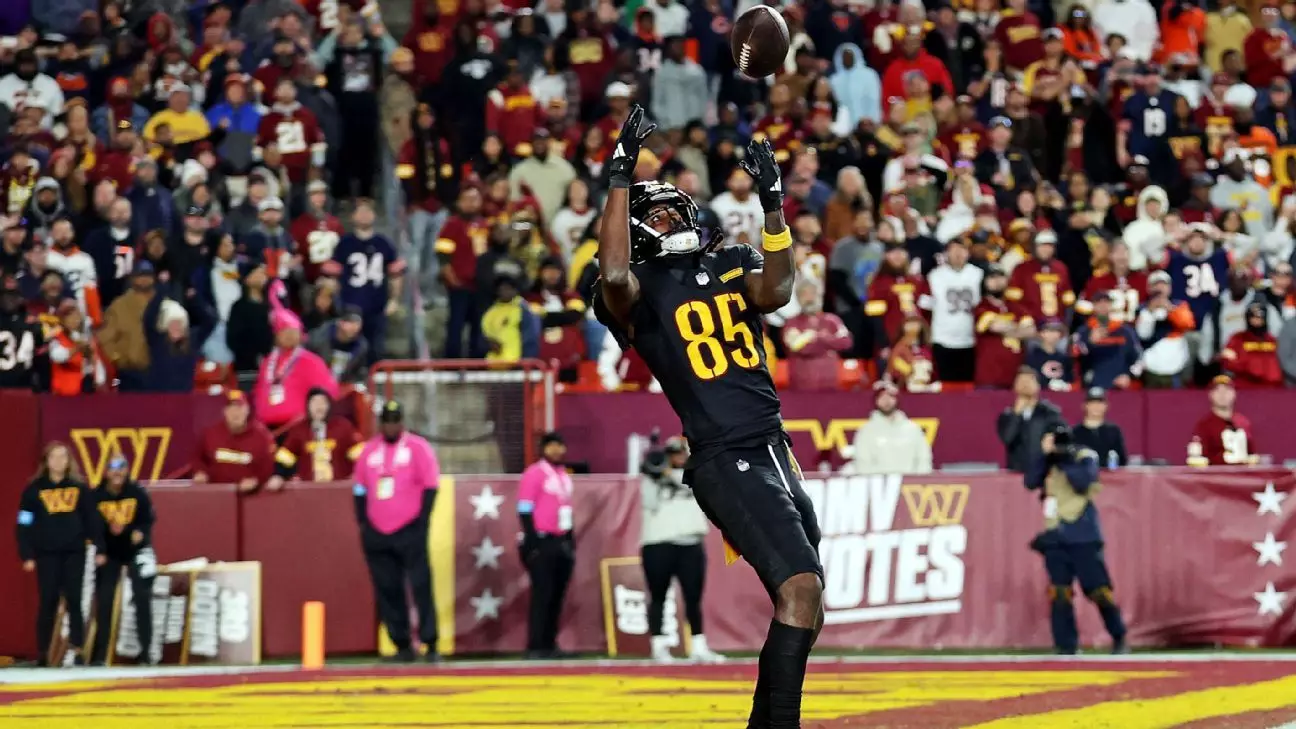The Washington Commanders are facing a daunting challenge as they navigate the latter part of their season without one of their key players, Noah Brown. Head coach Dan Quinn confirmed that Brown likely suffered a “significant internal injury” during the team’s Week 13 matchup, effectively sidelining him for the remainder of the season. This injury comes after what was shaping up to be a career-defining year for Brown, who was instrumental in the team’s recent successes, including a crucial Hail Mary touchdown against the Chicago Bears, a moment that exhilarated both fans and teammates alike.
Brown’s exit during the Commanders’ 42-19 victory over the Tennessee Titans on December 1 raises concerns, not just about his absence, but also about the team’s overall depth as they aim for a playoff spot. Currently holding the seventh seed in the postseason race, the Commanders must rally and adapt quickly to fill the void left by Brown, who had become a reliable target and an essential part of their offensive dynamic.
Brown’s contributions this season cannot be overstated. With 35 receptions, he was on track to surpass his previous career-high, establishing himself as the second major receiving threat on the team alongside Terry McLaurin. His ability to average 12.9 yards per reception showcased not only his reliability but also his capacity to make significant plays downfield. Furthermore, as a versatile player, Brown contributed to the run game with his effective blocking, enhancing the overall performance of the Commanders’ rushing attack.
Quinn expressed the difficulty of losing such a pivotal player, describing him as “one of our glue guys.” This sentiment epitomizes Brown’s value to the organization—not only through his statistics but also in his leadership and tenacity. His competitive spirit served as an inspiration to younger teammates, making his absence feel even more profound.
Moving forward, the Commanders will need to lean on a collective effort from their receiving corps. With the depth of talent available—such as Dyami Brown, who previously replaced Noah in earlier games, and other emerging receivers like rookie Luke McCaffrey and veteran Olamide Zaccheaus—the coaching staff remains optimistic. Quinn has consistently noted the potential for shared responsibility among the wide receivers, emphasizing that the rotation could be beneficial in alleviating the pressure on any single player.
Despite the optimism, there is no denying that Brown’s unique skill set—his size, speed, and competitive edge—will be sorely missed. With the playoffs looming, the Commanders’ ability to adapt and effectively distribute targets among a varied group will determine their success in the coming weeks. It remains to be seen whether they can overcome this setback and maintain their playoff position while adjusting to life without Noah Brown. The upcoming game against New Orleans will be a pivotal moment, not only in assessing their current roster’s depth but also in shaping their playoff aspirations.

